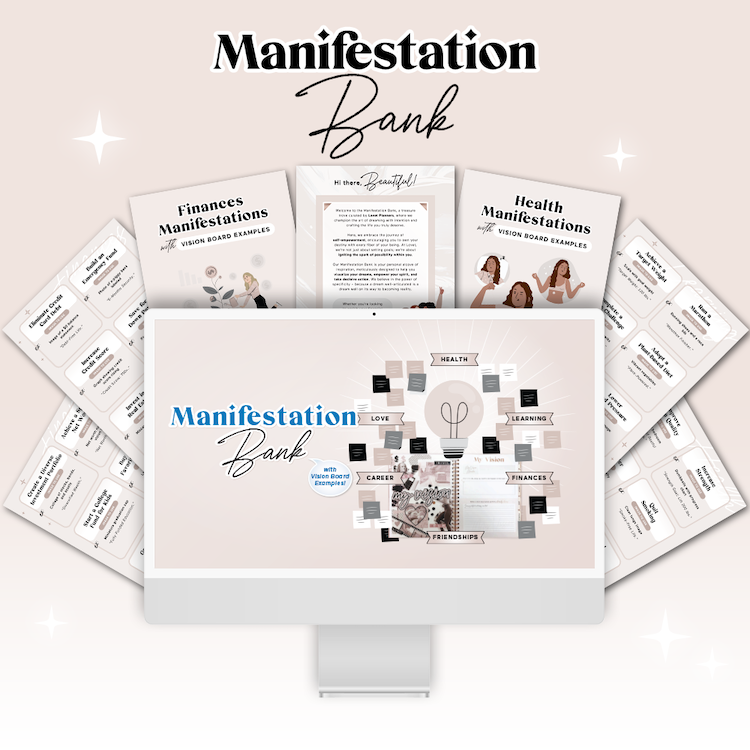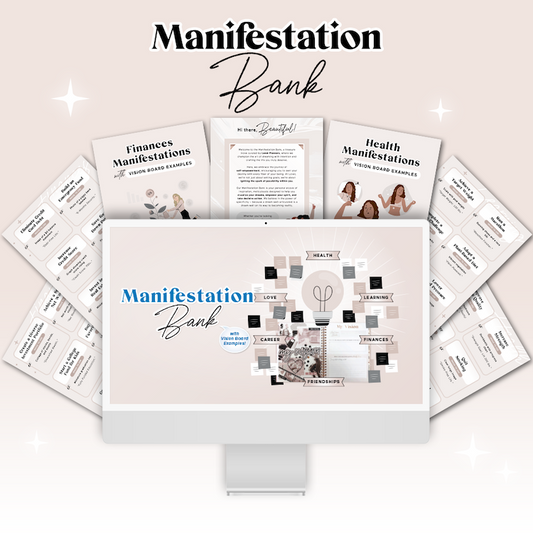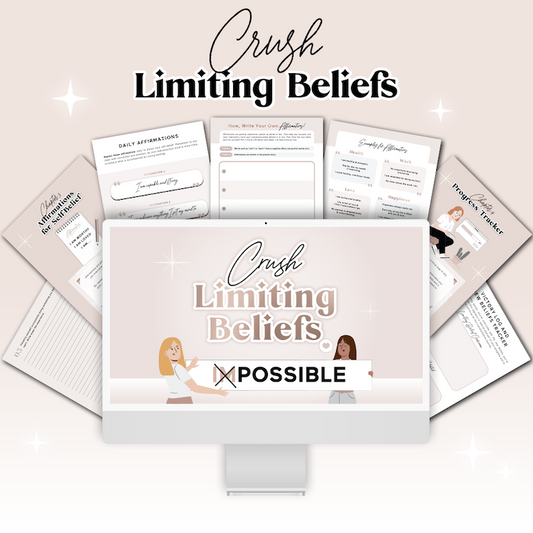Have you ever been deep in depression and faced the words get over it? Feeling so misunderstood and invalidated in your feelings can leave a mark that takes time and work to undo.
You’ll either meet people who are still learning how deep their empathy runs, or you’ll meet people who have no touch with empathy at all. This makes it difficult for them to understand and perceive emotions outside of themselves.
In theory, if someone is nicer, that should make the situation better.
But “nice” can cause damage too because believe it or not, you can be a nice person without a strong sense of empathy.
Like…imagine if you showed up to Lovet Planners HQ with our mental wellness journals and planners galore – things that are supposed to help you – but we didn’t let you in because GOOD VIBES ONLY? Sheesh.
That brings us to the big question: what is the difference between toxic positivity and positive thinking? What are the red flags and what does positive thinking do right that toxic positivity gets wrong?
Let’s start at the top!
What is Toxic Positivity?
According to Medical News Today, “Toxic positivity is an obsession with positive thinking. It is the belief that people should put a positive spin on all experiences, even those that are profoundly tragic.”
Toxic positivity does a good job of adding pressure to people who are already struggling with loss, trauma, and dips in mental health. It’s commonly imposed on others without being asked.
As shared on UW’s Right as Rain website, Tabitha Kirkland, a psychologist and associate teaching professor at the University of Washington’s Department of Psychology, agrees that it is important to recognize that toxic positivity and positivity are two different but related things. The basis is on our internal emotions and the emotions we project to others.
Those who dish out toxic positivity might not even be aware that they are, and studies have shown that toxic positivity is a coping mechanism for situations of discomfort or trauma response. This means that the ‘sender’ of the toxic positivity is dismissing steps necessary to process their emotions and brush things under the rug with positivity.
So what does toxic positivity look like? What can it look like?
- When someone passes away and their family is told “things happen for a reason”
- When someone is struggling with mental health issues and they’re told “be happy!”
Toxic positivity hurts the people around you - friends & family - and even you.
How do I recognize when someone is trying to push their toxic positivity on me?
Toxic positivity in person is commonly in response to moments where you’re venting and vulnerable having just experienced something that made you feel anything but positive. Here’s an example: Someone close to you recently passed away and you’re heartbroken. You confide in a friend and their response is “everything happens for a reason”.
While they might mean well, this phrase does nothing to provide comfort or reassurance. In fact, it’s a few layers away from being considered gaslighting.
In an ideal scenario, your friend would say something along the lines of, “I’m so sorry. I can only imagine how you’re feeling. Is there anything I can do?” Posing that question opens up an opportunity to offer help the way you need it.
Toxic positivity online is a different story. The digital world has opened up doors for many, and with that, toxic positivity can’t help but walk in as well. We see it in online communities, we see it on some influencer profiles we come across, etc. The whole “good vibes only” or “positive vibes only” gets problematic when “only” is definite and blocks out and invalidates negative experiences others may be having.
In an ideal scenario online, there’s a balance. Yes, you can be positive. Yes, you can be vulnerable. We are, after all, human! When people or groups present themselves as positive only, we may not be getting the whole picture and in turn, we examine our own lives too harshly. This is why authenticity is so important these days!
How do we separate ‘toxic positivity’ from the Law of Attraction and being happy?
The Law of Attraction is “the belief that positive or negative thoughts bring positive or negative experiences into a person's life”.
Are you allowed to manifest positivity with positive thoughts? Absolutely! Don’t worry about that. That’s within your control.
Toxic positivity primarily comes into play in terms of how we respond and interact with others. The positivity used for your/our own benefit in the Law of Attraction is at our own discretion whereas telling someone to not worry and be happy invalidates their feelings and experiences and falls under toxic positivity. There will be some overlaps but the discussion of toxic positivity is all about not doing harm to others.
Quick Questions to Ask
Use these questions as a cheat sheet to figure out “is it or isn’t it toxic positivity?”
- Does this positivity make me feel lesser or invalidated?
- Is this positivity something I consent to?
- Is this positivity in alignment with my own morals?
What are your thoughts on toxic positivity and positive thinking? Leave a comment below!
P.S. - We send out curated intentions every month to our newsletter subscribers so make sure you’re signed up to receive updates via email. CLICK HERE NOW.










